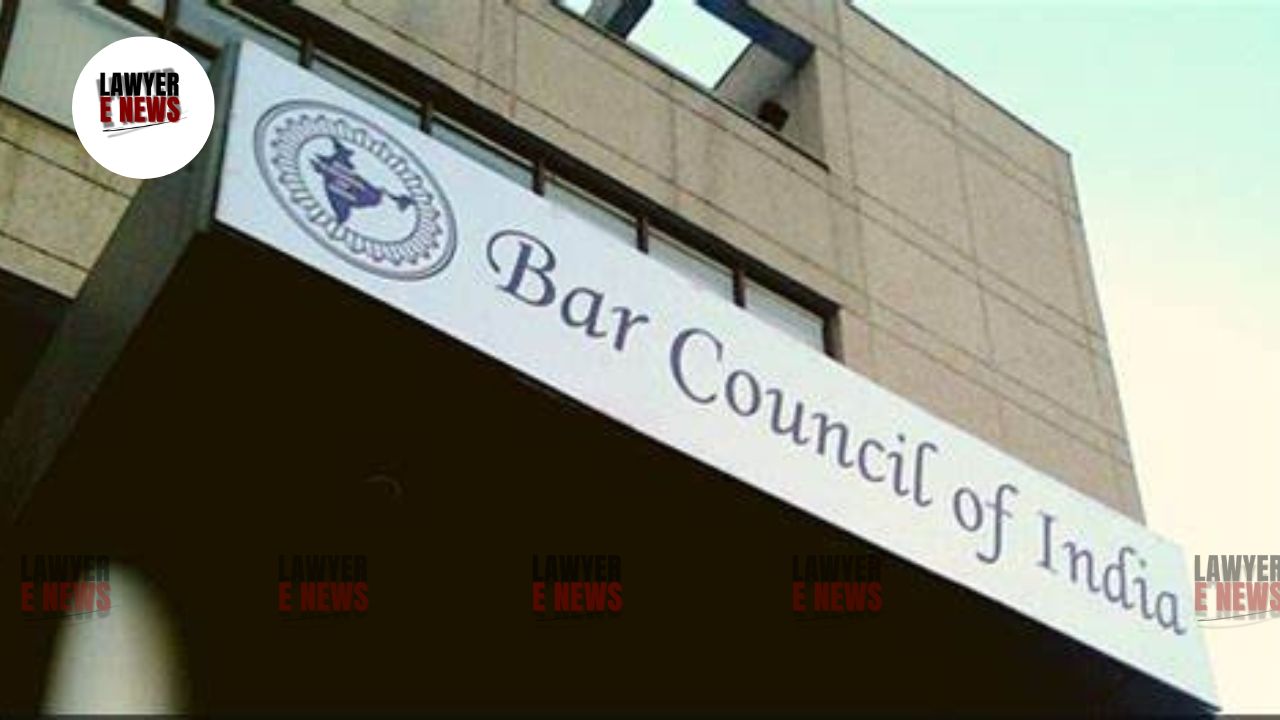-
by Admin
15 February 2026 5:35 AM



The courtroom is a place where advocates are expected to present their cases freely and without fear of intimidation. On October 7, 2024, the Chairman of the Bar Council of India, Senior Advocate Manan Kumar Mishra, addressed an urgent letter to the Hon'ble Chief Justice of India, Dr. Justice D.Y. Chandrachud, raising serious concerns about judicial conduct in various courts. The letter emphasizes the troubling behavior of certain judges towards advocates, specifically citing an incident involving Hon'ble Mr. Justice R. Subramanian of the Madurai Bench of the Madras High Court. This incident has highlighted a growing issue of courtroom decorum and the treatment of legal professionals, calling for immediate reforms to safeguard the dignity of advocates and maintain the integrity of the judiciary.
The letter recounts a recent virtual hearing at the Madurai Bench of the Madras High Court, during which Hon'ble Mr. Justice R. Subramanian reprimanded Senior Advocate Mr. P. Wilson and his co-counsel in a highly inappropriate manner. Despite Mr. Wilson's polite clarification that he was merely raising a potential conflict of interest without suggesting the judge's recusal, Justice Subramanian responded with aggression and made baseless allegations of unethical conduct against the counsel. Worse, the bench later recorded misleading remarks in its official order, accusing Mr. Wilson of making comments he never uttered during the proceedings.
The letter notes that this type of judicial behavior could create a "chilling effect" on the legal profession, causing advocates to fear unjust treatment or retaliation for simply doing their duty as officers of the court.
Another disturbing aspect of this incident is the unauthorized circulation of a video recording of the virtual hearing, which clearly contradicted the court’s official record. The Bar Council's letter points out that the Madras High Court’s Video Conferencing Rules expressly prohibit the sharing or downloading of such recordings. Despite these rules, the video was leaked and went viral on various platforms, raising serious concerns about the effectiveness of confidentiality safeguards in court proceedings.
The Bar Council of India’s letter stresses that the respect and dignity of advocates are essential to the fair administration of justice. It calls for an urgent reform of courtroom procedures and interactions between judges and advocates, ensuring that advocates, regardless of their seniority, are not subjected to public rebuke or intimidation.
Citing Article 1 of the Universal Declaration of Human Rights (UDHR), which emphasizes that "All human beings are born free and equal in dignity and rights," the letter argues that judges who disrespect advocates violate fundamental human rights principles. Such behavior not only undermines the professional respect due to advocates but also risks eroding public confidence in the judiciary.
The letter also references previous Suo motu observations of the Supreme Court, which have underscored the need for judges to maintain fairness and dignity during court proceedings. It suggests that judicial conduct that strays into personal attacks or unnecessary criticism falls outside the protection offered by the Judges (Protection) Act, 1985.
One of the more progressive suggestions in the letter is the implementation of regular mental health evaluations for judges, along with psychological training and orientation programs. The Bar Council of India believes that the mental well-being of judges plays a crucial role in preventing judicial misconduct. A special committee, preferably consisting of retired judges, could oversee such evaluations and provide necessary support, training, or counseling when required.
In concluding the letter, Mr. Mishra emphasizes that the Bar and the Bench must work in harmony, built on mutual respect and dignity. Judicial misconduct, especially when it disrespects advocates, threatens the credibility of the legal system and erodes public trust. The Bar Council of India urges the Chief Justice to consider implementing a clear code of conduct for judges and to prioritize judicial well-being in order to ensure that courtrooms remain spaces of justice, free from intimidation or fear.
